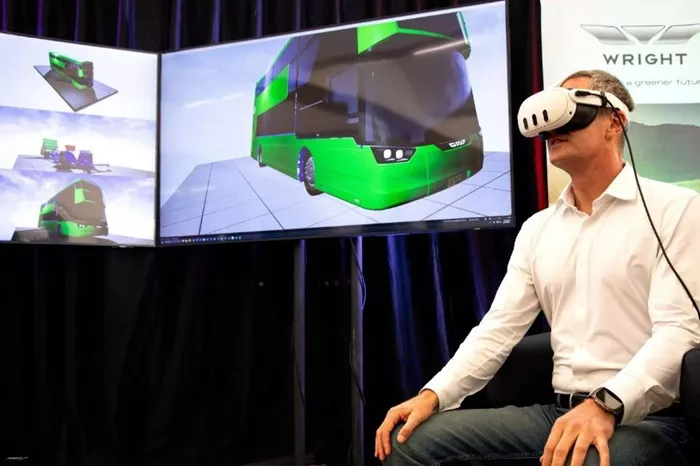Wrightbus, a leading manufacturer of zero-emission buses based in Northern Ireland, has committed £25 million to developing the next generation of green buses. This move was praised by Peter Kyle, the UK Government’s Science and Technology Secretary, who highlighted clean energy as a crucial driver for economic growth in the Labour Government’s “Plan for Change.”
As the fastest-growing zero-emission bus manufacturer in the UK, Wrightbus plans to accelerate the production of electric and hydrogen-powered buses. This initiative could create numerous new jobs and significantly reduce carbon emissions. Research indicates that for every £1 a business invests in research and development (R&D), the company can see a 20% return, which also benefits the wider economy.
During a visit to Wrightbus’s headquarters in Ballymena, Mr. Kyle encouraged other businesses to invest in similar projects. He stressed that such investments are key to maintaining the UK’s leadership in science and technology, with the Government alone unable to deliver this growth. Wrightbus is part of Northern Ireland’s growing network of high-tech businesses, which includes a thriving manufacturing sector and an expanding tech scene.
The UK Government’s upcoming Industrial Strategy, to be unveiled this summer, will focus on expanding industries like advanced manufacturing, clean transport, and clean energy. The goal is to make Britain the best place to do business and to help more companies lead the way in these future industries.
This new investment is part of the Government’s broader efforts to boost the demand for electric vehicles (EVs). Already, a £2.3 billion investment has helped improve EV manufacturing and charging infrastructure. Since July, £34.8 billion of private investment has been injected into the UK’s clean energy sector. In 2024, the UK became Europe’s largest EV market and the third-largest in the world, with over 382,000 EVs sold—an increase of 20% from the previous year. The UK now has over 75,000 public charge points, with a new one added every 29 minutes, making it easier for drivers to charge their EVs.
Wrightbus has also reached a significant milestone, with its buses now having driven over 50 million zero-emission miles, which has helped prevent more than 85,000 tonnes of CO2 emissions compared to diesel buses. This rapid growth demonstrates the UK’s strength in high-tech manufacturing and the economic benefits of investing in green innovation. Wrightbus is also a potential customer of the Bradford Low Carbon Project, which has received funding from the Government’s hydrogen programme.
In 2024, Wrightbus achieved a record number of orders, a figure it is on track to surpass this year. The company plans to increase its production from 1,016 units to 1,200 in the next year and aims to reach 1,400 by 2026. Its supply chain spans 47 counties, with suppliers ranging from heating system providers to software developers, both in the UK and key European markets such as France, Germany, and the Netherlands.
Wrightbus CEO Jean-Marc Gales expressed pride in the company’s achievements, noting that this investment is the largest ever committed to R&D by Wrightbus. “Innovation has been a key factor in our rapid growth, allowing us to shift from producing 95% diesel buses to 95% zero-emission buses in less than five years,” he said.
Gales added that ongoing research projects, including the development of a hydrogen-powered coach, further enhancements to the Electroliner bus, and improvements to their telematics system, will continue to push the boundaries of zero-emission transport. He emphasized that these efforts are a major boost for manufacturing in Northern Ireland and the wider UK.

